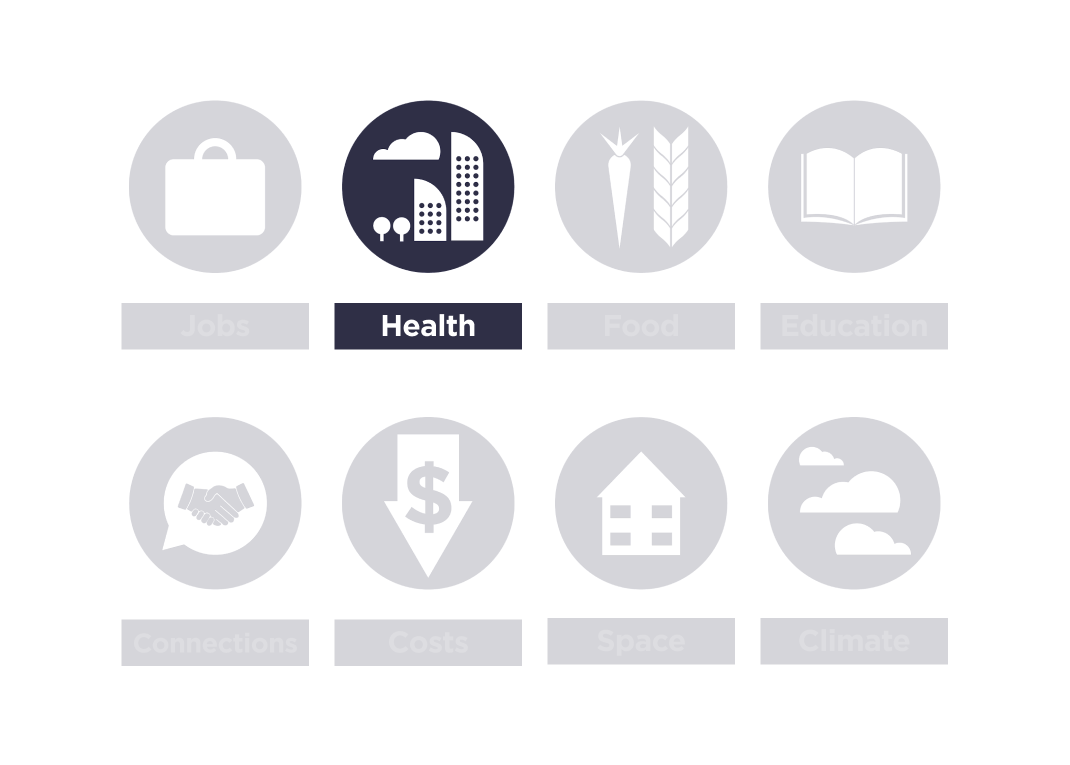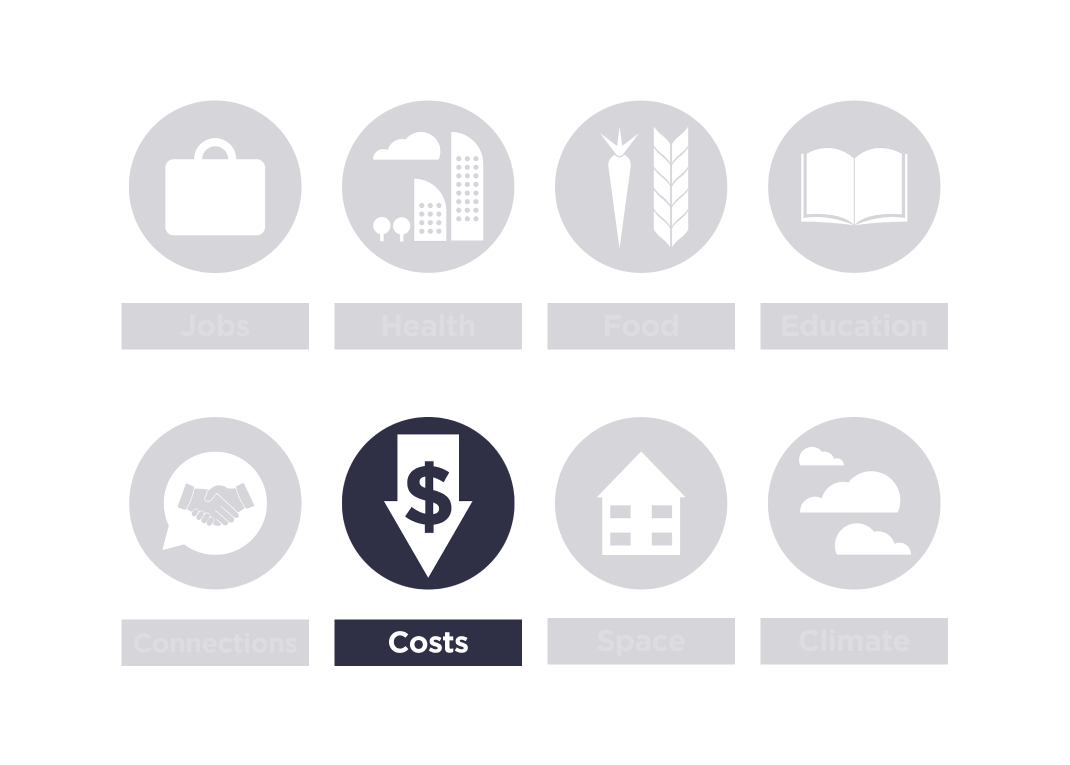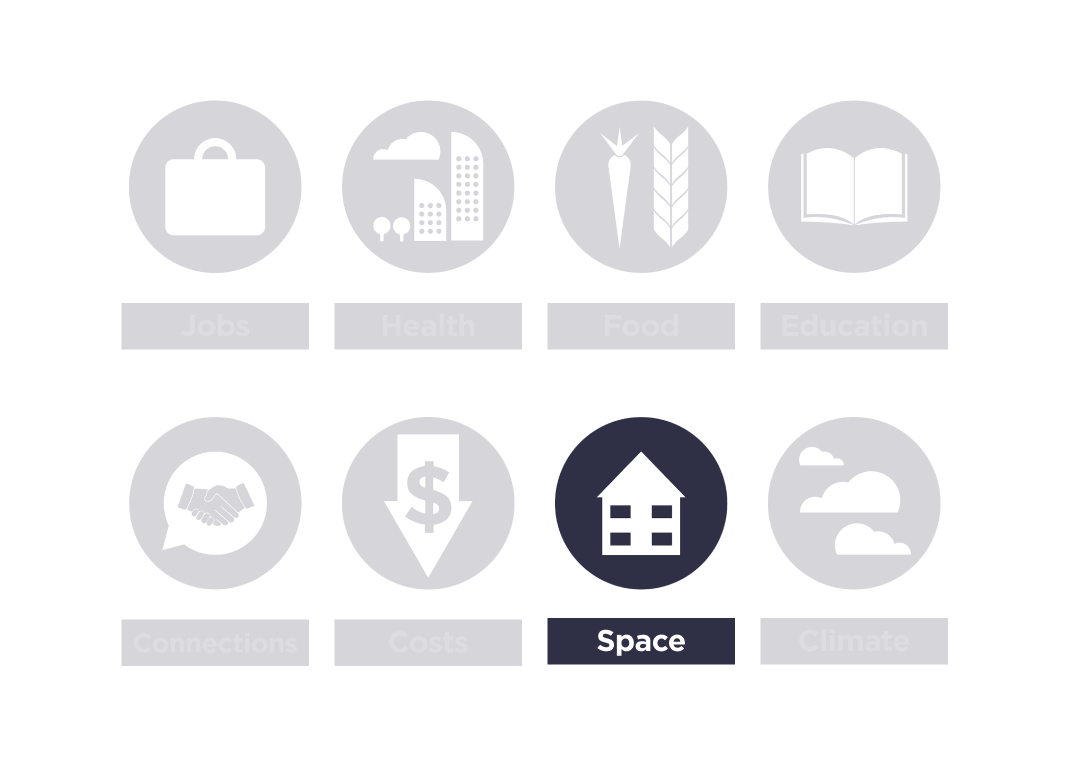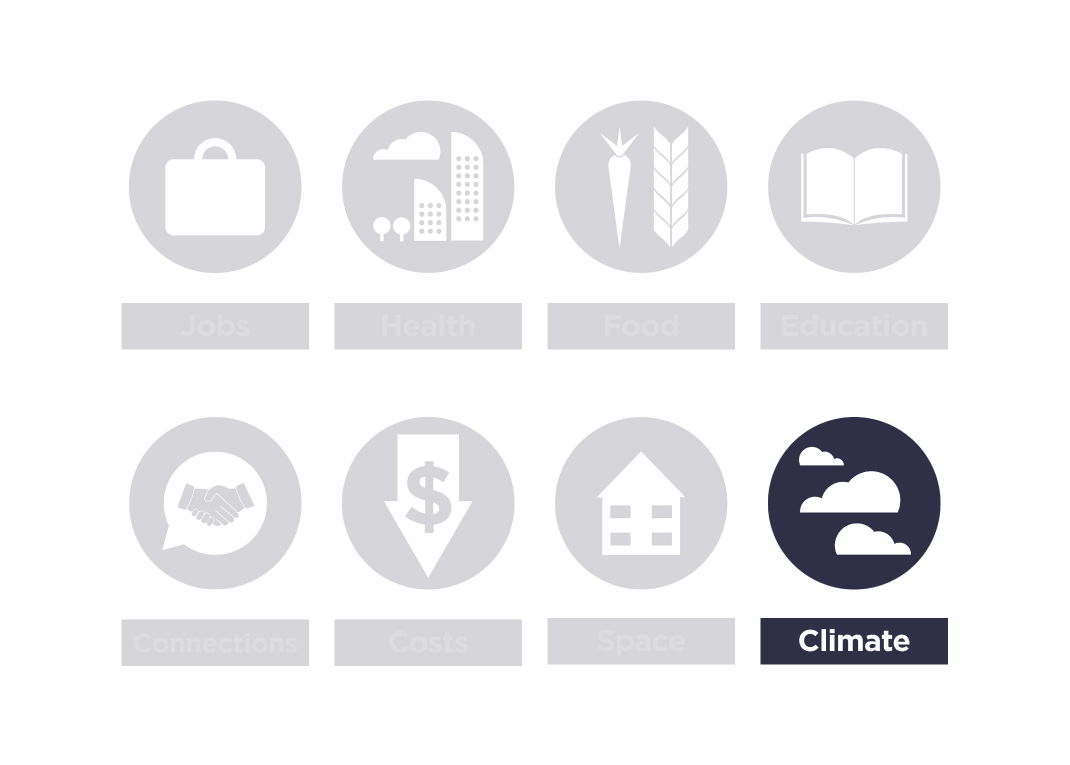A circular economy brings about many positive outcomes - not least the opportunities to boost biodiversity by freeing up land for nature, and tackle the carbon emissions generated by industry, agriculture and land use that make up 45% of all greenhouse gas emissions.
Creating local circular economies in neighbourhoods will contribute to these big-picture wins, but can also usher in significant and tangible benefits at ground level for communities and the environment.
At the city scale, ReLondon estimates that a circular economy could create an extra 284,000 jobs by 2030 in the UK capital alone.

Job creation
Circular initiatives such as local exchange and repair centres, the use of urban gardens to test food system innovations, and finding ways to manage and reuse construction and demolition waste, could create new and specialised jobs and upskill local people - in fact, research has found that repair creates over 200 times as many jobs as landfills and incinerators. In Augustenborg, unemployment in the area has fallen significantly and new companies have been established to manage the systems to manage the water, green roofs and car pool scheme. In the Indonesian city of Surabaya, as part of its mangrove restoration project, residents are taught how to make products from the trees, boosting local incomes and encouraging the community to maintain the mangroves.


Better air quality and urban health
Reducing the use of private cars through car pooling, green spaces, cycle- and pedestrian-friendly streets, and sustainable urban transport systems, will cut pollution, improve air quality for citizens and incentivise active travel. This in turn reduces pressure on healthcare systems. Mental health is also improved by greener, more liveable neighbourhoods: Barcelona's superblock scheme, which closes neighbourhoods off to cars and creates spaces to play and socialise, could prevent 13% of cases of poor mental health.

Access to nutritious food
Community gardens, organic producer networks, better links between urban centres and peripheral farms, and alternative markets provide communities with access to better quality food, in turn leading to better health outcomes. For example, Mexico City’s barter market allows customers to exchange recyclables for fresh produce and plants, as well as other services, while helping to raise awareness and educate citizens about the benefits of separating recyclable waste. Between January 2019 and May 2023, 68,387 people participated resulting in more than 217,000 kg of recyclable waste being collected.

Image credit: Secretaría del Medio Ambiente de la Ciudad de México

Education and learning
Initiatives such as urban gardens, makerspaces and community kitchens can provide spaces for hands-on learning about circular practices. Augustenborg’s children watch in the basement of their school as the worms turn sewage into compost, demonstrating the natural cycle of nutrients in a way they won’t forget.

Connected and engaged communities
In the UK, 60% of people would like to be involved in neighbourhood projects, but only 3% actually are. Circular neighbourhoods enhance social interactions by creating community spaces for gardening, making, reusing, sharing and repairing, increasing opportunities for residents to meet each other on a daily basis. In Toronto, biannual Secondhand Sundays encourage citizens to place items they no longer use outside their house for passersby to pick up, helping to bring neighbours together and spark conversations about sharing and reuse. Makerspaces like Maakleerplek in Leuven, Belgium provide a welcoming space for everyone to come together and create things, exchange knowledge, and share tools and materials.

Reduced costs for citizens
Local people can save money by accessing food through exchange markets, community fridges and community gardens, and by extending product lifespans through repair and reuse hubs. Edinburgh Tool Library has saved households GBP 1.5 million as members switch from buying to sharing tools for their projects. In London, ReLondon and the London Borough of Bexley have been promoting technology-based solutions like Olio and Kitche to help Bexley residents share and redistribute free surplus food.


Saved space
Sharing schemes such as tool libraries, bike rentals, and systems for donating unwanted goods, allow citizens to save space within their homes. Montreal’s LocoMotion app is an example of a transport sharing scheme that allows people to access rather than own cars, bicycles and trailers that might otherwise take up space at home. Making smaller homes more comfortable to live in can also contribute to reducing the surface area of new housing, a crucial climate strategy for reducing built environment emissions.

Climate mitigation and adaptation
Many cities are setting net zero targets for both operational and embodied emissions. Neighbourhood initiatives can contribute to these targets through the use of local and natural materials for construction of new buildings; through optimising, reusing and repurposing existing buildings and infrastructure; through consuming locally grown food; and through low-carbon, shared and active transport options. For example, De Warren is a new housing cooperative established in Amsterdam made from reclaimed and recycled timber, designed to nurture community.
Circular neighbourhood initiatives can also contribute to climate adaptation. For example, a growing number of neighbourhoods are integrating measures to counter the effects of flooding and the neighbourhood of Dunbar Spring in Tucson, Arizona is a community-planted urban food forest providing nutritious food, shade and cooling of up to 20C in a city experiencing rapidly rising temperatures and drought.

Next up: the pathways
Circular neighbourhoods will look different from city to city, and in different areas within cities, because of variations in social, environmental, and cultural factors. Each city government also differs in the way it supports specific neighbourhoods, influenced by its own culture and politics. Nonetheless it is possible to identify three approaches to creating circular neighbourhoods, representing different routes, stages, and scales of action:







